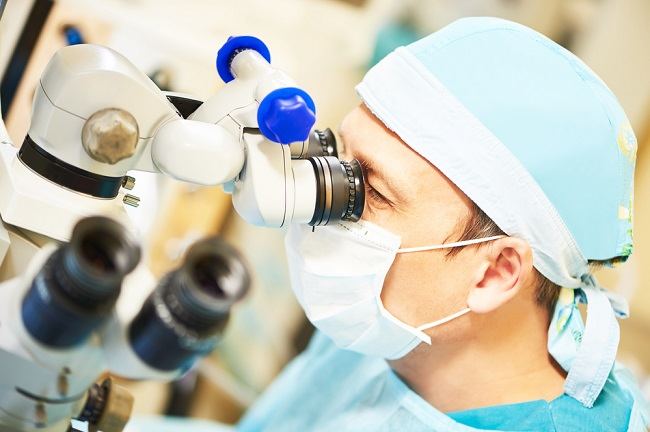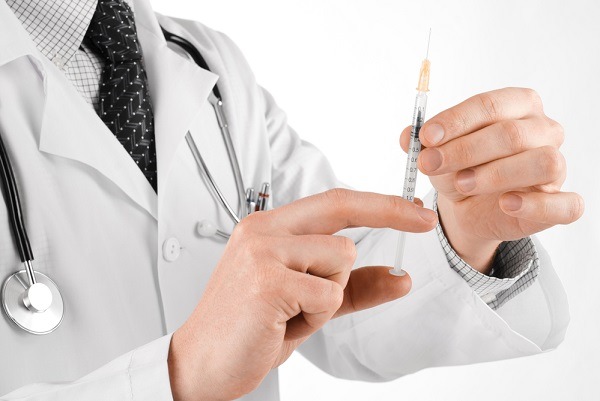If you often have free sex, be careful because this behavior can lead to the transmission of various dangerous diseases. Unprotected sex can increase your risk of getting sexually transmitted diseases (STDs).
Sexually transmitted diseases generally occur due to unsafe sexual intercourse (without a condom), free sex, or changing partners either through penetrative, oral, or anal sex.

In addition, STDs can also be transmitted through other methods such as contact with body fluids including blood, urine and feces of people with STDs, transmission from pregnant women to the fetus in the womb, and in some cases, through the use of unsterile medical devices.
Various Diseases That Can Be Caused by Free Sex
Here are some diseases that can be transmitted through free sex:
- GonorrheaSeveral recent case reports state that the type of gonorrhea that is resistant to antibiotics is on the rise. Gonorrhea or gonorrhea is a sexually transmitted disease caused by bacteria called Neisseria gonorrhoeae. The spread of this disease is generally through contact of the mouth, vagina, penis, or anus during sexual intercourse.
A person affected by this disease will usually experience symptoms such as pain when urinating, discharge such as pus at the tip of the penis or vagina, frequent urination, and pain in the genitals.
- chlamydiaChlamydia is caused by bacteria Chalmydia trachomatis which is usually transmitted through sexual intercourse. This disease not only infects the genitals, but can also infect the eyes if infected vaginal fluid or sperm gets in the eyes.
- SyphilisSyphilis or lion king is a sexually transmitted disease caused by bacteria Treponema pallidum. Just like the two previous diseases, syphilis is also transmitted through unsafe sexual activity. This disease can cause symptoms of painless sores on the genitals or in the mouth, which then disappear in about 6 weeks. This disease can persist for several months and years, causing disturbances in other organs of the body.
- ChancroidAlso called mole ulcer, is a sexually transmitted disease caused by bacteria Haemophilus ducreyi. This disease can appear within 3-7 days after sexual contact with people who suffer from chancroid. Symptoms include the appearance of sores on the genital organs that are painful, dirty, and red. Sometimes there is also swollen lymph nodes around the groin.
- Genital wartsJust like warts on the skin, genital warts are also caused by infection with the HPV virus. This venereal disease is transmitted through direct physical contact on the genital organs of people with genital warts through sexual intercourse. In women, transmission of certain types of HPV infection can cause cervical cancer.
- Genital herpesGenital herpes is a sexually transmitted disease caused by the herpes simplex virus 2 (HSV 2). A person affected by this disease is usually characterized by the appearance of watery boils on the genitals. In addition, other symptoms that can appear due to genital herpes, such as itching in the genital area and anus, pain when urinating, fever, body aches, and swelling of the lymph nodes.
In addition to some of the diseases above, diseases that can be transmitted through free sex can also be HIV, hepatitis B, trichomoniasis, and pubic hair lice. However, not all cases of HIV in people living with HIV (PLWHA) are caused by casual sex.
Avoid Free Sex and Do it Safe Sex
Before getting sexually transmitted diseases, it's a good idea to avoid having free sex and start having safe sex. Here are ways to avoid casual sex and have safe sex, including:
- Loyal to one partnerThe safest sexual relations are with only one partner. Make sure that your partner only has sex with you. In addition, do regular checks on you and your partner before starting sexual intercourse. This is done to ensure that there are no sexually transmitted diseases between you and your partner.
- Use a condomUsing a condom during sexual intercourse is one way to reduce the risk of transmitting sexually transmitted diseases and prevent unwanted pregnancies. For that, you should use a condom every time you have sex with a new partner. In addition, use a lubricant so that the condom does not tear easily during penetration and make sure the condom does not expire when you want to use it.
- Avoid consuming alcoholic beverages and drugs before having sexConsuming alcoholic beverages and using drugs before sexual intercourse risks affecting your mind. When you are drunk, you can no longer think well and decide things properly. For example, not using condoms as protection or not using condoms properly. Therefore, avoid consuming alcoholic beverages and drugs so that you avoid the transmission of sexually transmitted diseases.
- Avoid having unsafe sexFurthermore, you and your partner are advised to continue to commit to stay away from casual sex and not to have unsafe sex, such as oral or anal sex with more than one partner, as well as using sex toys (sex toys) alternate with others.
In addition to avoiding risky sexual behavior, it is also important to get vaccinated to prevent sexually transmitted diseases including hepatitis B and HPV vaccinations. If your sexual behavior is at risk, it is also recommended to get treatment to reduce the risk of HIV infection, this treatment is called pre-exposure prophylaxis (PrEP).
Free sex can be avoided, but it depends on each individual. So that you do not get sexually transmitted diseases, it is highly recommended to do the things above. If your protection is still not optimal, you can see your doctor for PrEP or vaccination as an additional preventive measure.









